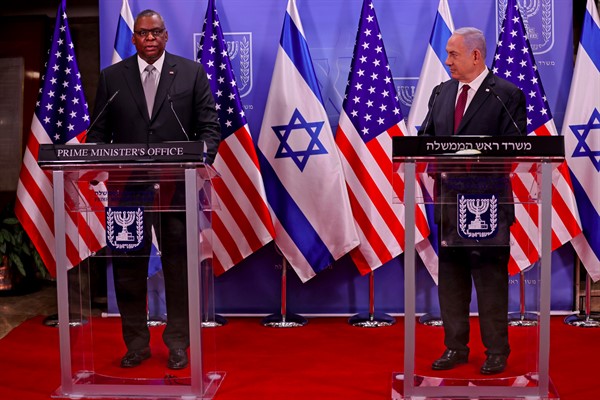While tensions between Israel and Iran have been omnipresent in the Middle East for decades, the prospect of open military conflict between the two countries has never seemed closer than it does now. Over the past few months, the two rivals have escalated an undeclared naval war featuring unclaimed attacks on Israeli- and Iranian-owned ships. At the same time, Israel has continued its air strikes on Iranian weapons shipments transiting across Syria, and a damaging explosion on April 11 at Iran’s Natanz nuclear facility was widely attributed to Israel.
All of this comes against the backdrop of U.S. President Joe Biden’s efforts to hold talks with Iran in order to explore the possibility of reviving the 2015 nuclear deal or crafting a new agreement to rein in Iran’s nuclear program. With a delegation of senior Israeli national security and intelligence officials in Washington this week for talks with the Biden administration on Iran, the spotlight is shining brightly on Israel’s current approach to countering Iran and whether or not its disagreements with the U.S. on this issue can be managed.
The last time friction arose in the U.S.-Israel alliance over Iran, it was in the leadup to the Obama administration’s eventually successful negotiations that led to the crafting of the Joint Comprehensive Plan of Action, or JCPOA, as the multilateral nuclear deal is formally known. Israeli officials’ concerns at the time were about both substance and process; they complained about being kept in the dark about the secret American overtures to Iran that preceded the formal negotiations, and the Israeli security establishment was almost uniformly of the view that the deal fell short in a number of critical areas.

